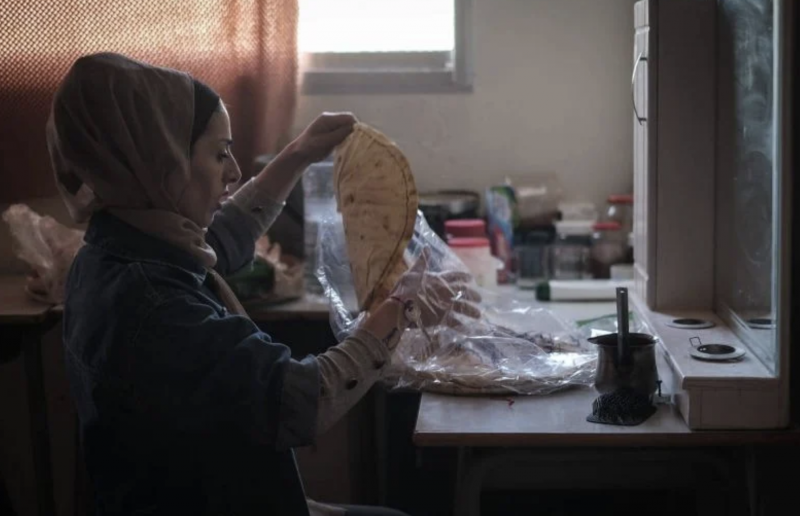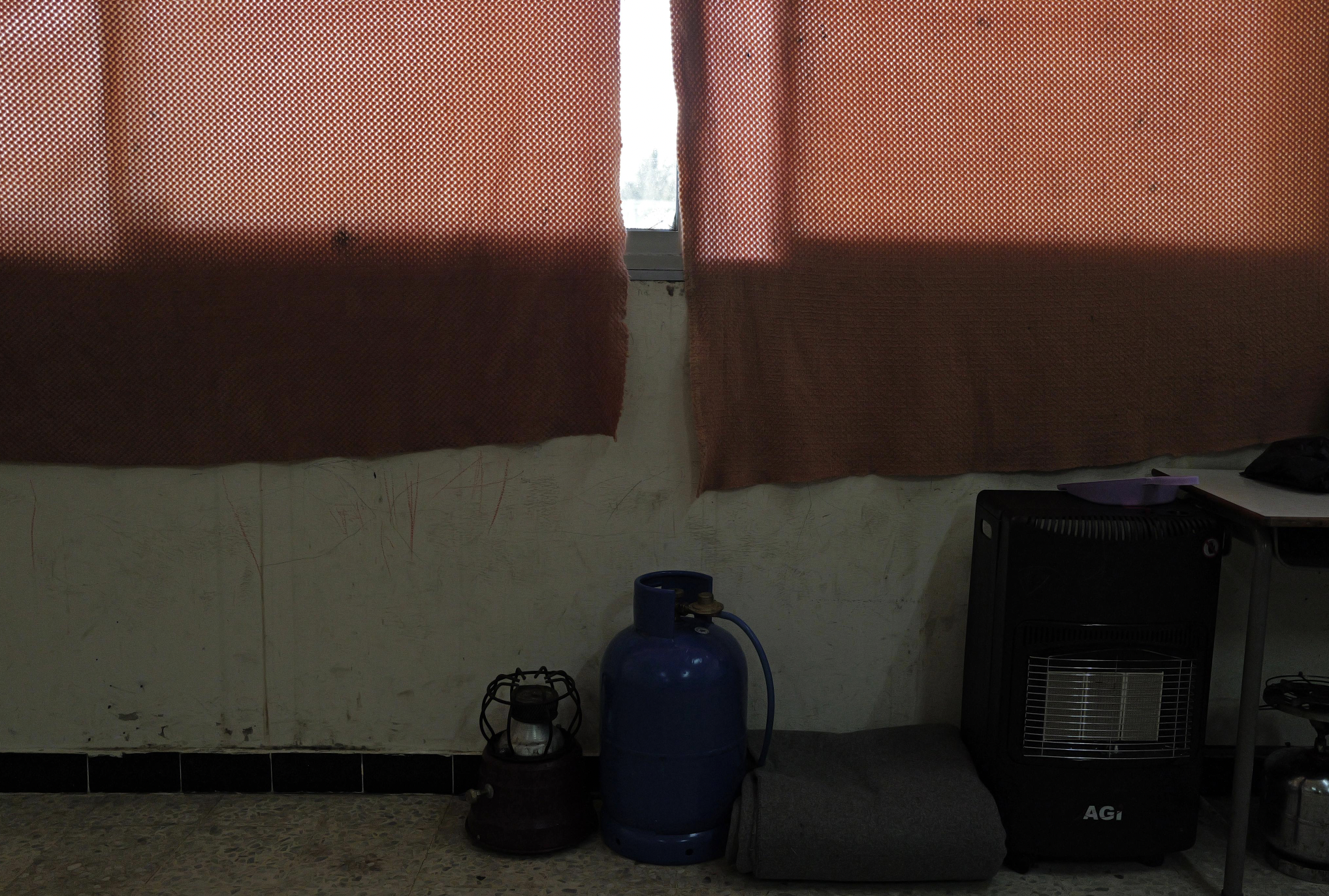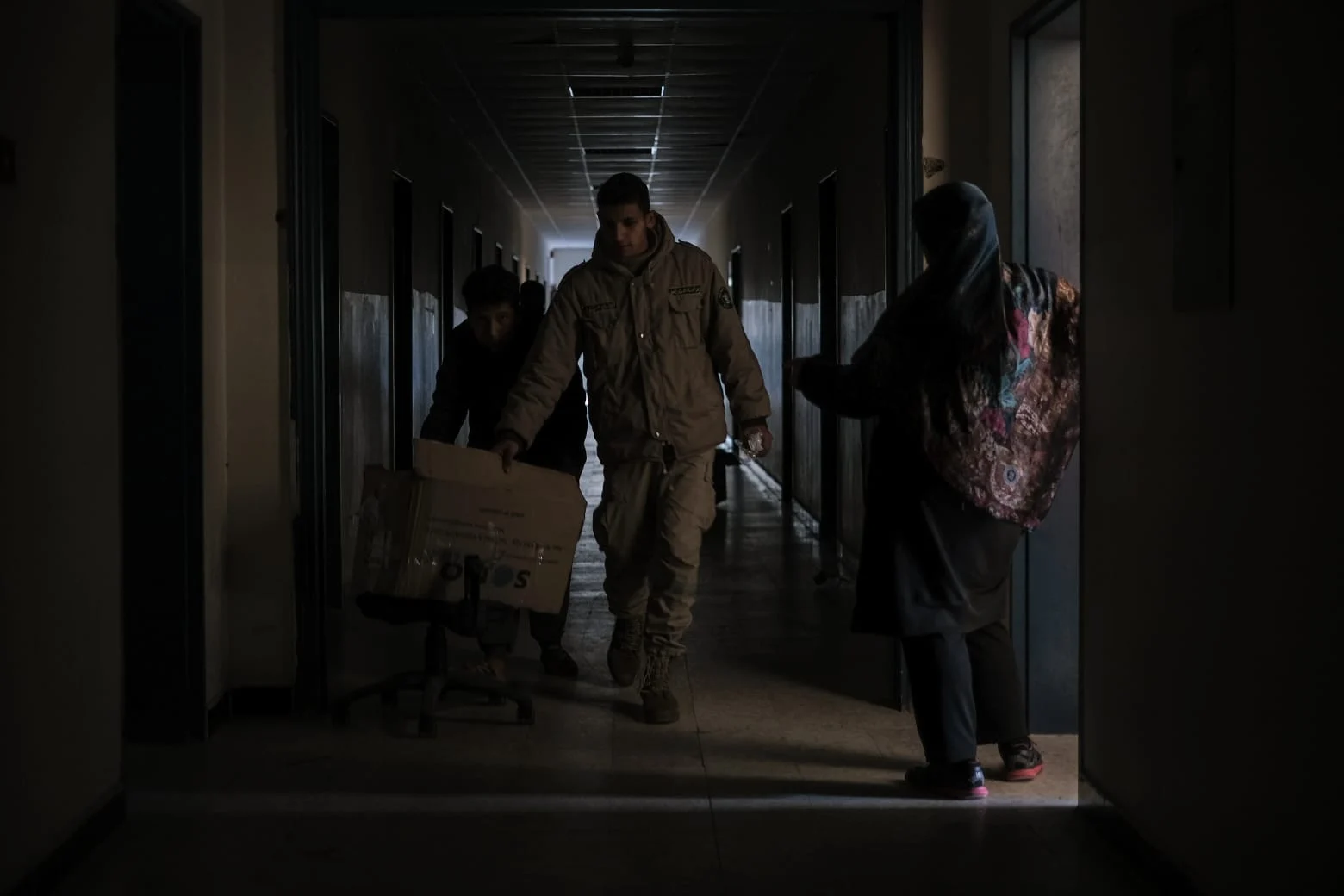
Farah, a displaced person from Beit Lif, in Sour's technical high school, now a makeshift shelter, on Feb. 2, 2024. (Credit: João Sousa
Fatima* painstakingly chain-smoked cigarettes in the cramped room she shares with her sister Aisha*. The call to prayer signaling the end of the fast had yet to echo through Sour.
“I simply don’t have the strength to fast,” said the 50-year-old resident of Dhairah, a Sunni village in the Sour district, which has been ensnared in the crossfire between Hezbollah and Israel for nearly six months now.
Alongside more than 90,000 displaced people in southern Lebanon, the two women anxiously await the opportunity to return to their homes, with no glimmer of hope on the horizon. Despite the festive Ramadan decorations adorning Sour and the rest of the country, their reality remains one of uncertainty and displacement.
But during this sacred month for Muslims, the displaced find it hard to fully engage.
“Yet there’s nothing quite like Ramadan,” said Fatima.
Despite their circumstances, her sister continues to fast.
“This month is meant for reflection, for inner tranquility,” Aicha said. “But emotionally, we’re drained.”
Fatima is consumed by frustration and contempt for the two parties involved in the war.
“Let’s not overlook the Palestinian factions,” Aisha added, referring to groups like Hamas and Islamic Jihad, also active on the front lines in southern Lebanon.
Due to the ongoing conflict, Fatima suffered losses in her seasonal harvest, while Aisha lost her job at a local restaurant.
To make ends meet, they depend on the help from a relative residing abroad. Additionally, they have resorted to selling some of their gold jewelry and are contemplating doing the same for their groceries this month.
That evening, Aisha broke her fast with labneh, hummus and soup. “But the true tragedy lies in the schools,” Fatima said.
‘We have no money’
At the technical college in Sour — now serving as a makeshift shelter for the displaced — a meal is provided to families for iftar.
However, “it’s not sufficient; after fasting all day, we crave soup and fattoush,” said Farah, who arrived from the southern town of Beit Lif with her five children.
In Lebanese households, a mother would typically stock her fridge two days before Ramadan begins. “But this year we’re not in our own home. Moreover, we have no money,” Fatima said.
 In a public school in Sour hosting displaced persons, Mar. 14, 2024. (Credit: Matthieu Karam)
In a public school in Sour hosting displaced persons, Mar. 14, 2024. (Credit: Matthieu Karam)
Hezbollah did not directly respond to L’Orient-Le Jour’s inquiries during this time. It reportedly provided these displaced individuals with $200 per family, according to their accounts.
Given the exorbitant cost of living in a nation mired in crisis for over four years, “it’s all gone... I’m not resentful; [Hezbollah] is our only source of assistance,” said Zainab, hailing from Blida, another southern town.
The sentiment echoed with Aya from Khiam, a predominantly Shiite village, who currently resides in Baissariyeh (in the Nabatieh district) with her father and sister in a government-provided residence.
“The state is utterly absent,” she said.
In early February, the Ministry of Social Affairs disclosed the disbursement of assistance amounting to $25 per month per registered displaced family under its administration, along with $20 per individual member. This aid is funded by international donors.
 In a public school in Sour hosting displaced persons, a young man distributes food, Feb. 2, 2024. (Credit: João Sousa)
In a public school in Sour hosting displaced persons, a young man distributes food, Feb. 2, 2024. (Credit: João Sousa)
“Since the onset of the conflict, Hezbollah has been providing monthly food assistance along with $100,” said Mariam, originally from Khiam in the Marjayoun district, now displaced to Kfar Joz. “Additionally, for Ramadan, the party issued $200, dubbing it the ‘gift of the month.’ I have no party affiliation, but one must acknowledge [Hezbollah’s] indiscriminate aid.”
On the other hand, Fatima said that she heard about this aid but chose not to request it. “No one can purchase my loyalty,” she said proudly.
Khaled*, displaced from Yarin, a predominantly Sunni village, said he didn't have this specified amount.
‘We don’t have the appetite’
Khaled, who’s retired, currently resides at his brother’s residence in Sour with his wife and two sisters.
“We observe the fast, but the essence of Ramadan eludes us,” he said. “We must adapt.”
Accustomed to a dining table adorned with homegrown produce, communal dish exchanges with neighbors and reciprocal invitations, the 60-year-old reminisced. This year, with 10 occupants sharing their apartment, the table space proved inadequate for everyone.
Meanwhile, Mariam endeavors to uphold the “traditions” of the month, maintaining the ritual of breaking the fast at the homes of friends and family and preparing familiar iftar meals as in years past.
“I’ve attempted to recreate our life in Khiam here, but it lacks the same joy, peace and comfort,” said this mother of two, residing in her in-laws’ secondary residence.
For Aya, the thought of returning home for Ramadan has crossed her mind.
“Desperation has intensified tenfold this month,” she said. Even during iftar, “we don’t have an appetite.”
*Names have been changed at the request of the interviewees.
This article was originally published in L'Orient-Le Jour. Translated by Sahar Ghoussoub.